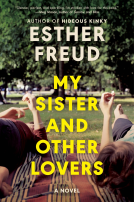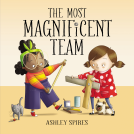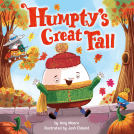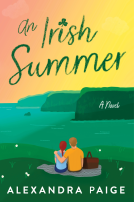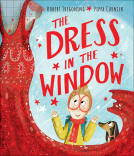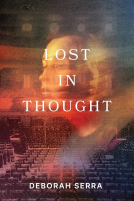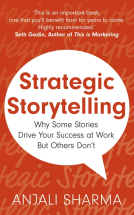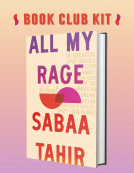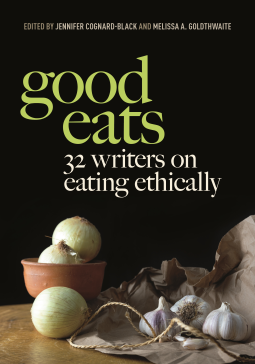
Good Eats
32 Writers on Eating Ethically
by Edited by Melissa A. Goldthwaite and Jennifer Cognard-Black
This title was previously available on NetGalley and is now archived.
Send NetGalley books directly to your Kindle or Kindle app
1
To read on a Kindle or Kindle app, please add kindle@netgalley.com as an approved email address to receive files in your Amazon account. Click here for step-by-step instructions.
2
Also find your Kindle email address within your Amazon account, and enter it here.
Pub Date Jan 09 2024 | Archive Date Mar 18 2024
Talking about this book? Use #GoodEats #NetGalley. More hashtag tips!
Description
A collection of insightful and personal essays on the role of food in our lives
In an age of mass factory farming, processed and pre-packaged meals, and unprecedented food waste, how does one eat ethically?
Featuring a highly diverse ensemble of award-winning writers, chefs, farmers, activists, educators, and journalists, Good Eats invites readers to think about what it means to eat according to individual and collective values. These essays are not lectures about what you should eat, nor an advertisement for the latest diet. Instead, the contributors tell stories of real people—real bellies, real bodies—including the writers themselves, who seek to understand the experiences, cultures, histories, and systems that have shaped their eating and their ethics.
A wide array of themes, topics, and perspectives inform the selections within Good Eats, contributing to an enhanced understanding of how we eat as individuals and in groups. From factory farming and the exploitative labor practices surrounding chocolate production, to Indigenous foodways and home and community gardens, the topics featured in this collection describe the wider context of sustenance and ethical choices.
Good Eats will encourage you to become more mindful of what and how you eat—and to consider the larger systems and cultures that shape that eating. These essays turn mundane meals into remarkable symbols of how we live, encouraging each of us to find food that is both sustaining and sustainable.
Contributors include Ross Gay, DeLyssa Begay, Lynn Z. Bloom, Michael P. Branch, Nikky Finney, Shirley Geok-lin Lim, Barbara J. King, Aimee Nezhukumatathil, Leah Penniman, Adrienne Su, Ira Sukrungruang, Tina Vasquez, Nicole Walker, Thérèse Nelson, Lisa Knopp, Jane Brox, Maureen Stanton, Taté Walker, and many others.
Available Editions
| EDITION | Other Format |
| ISBN | 9781479821792 |
| PRICE | $32.00 (USD) |
| PAGES | 352 |
Available on NetGalley
Featured Reviews
The very first line about this book drew me in and it was a question, "In an age of mass factory farming, processed and pre-packaged meals, and unprecedented food waste, how does one eat ethically?"
What has ethics got to do with food? Is what I asked myself, but for someone whose culture is woven around food and the recent drastic effects of climate change threatening our livelihood, I wanted to read this book, because there is an african saying that 'food brings happiness' and among our people- there is more to do with giving thanks for what had to be given up to nourish you- for example, for the cow that had to lose its life, or the chicken that had to lose its life so you could be treated to meal, or for the vegetables that is before you- and also for the farmers and the earth that toiled for seasons to present a bountiful harvest.
I think for me, reading this book was more a reminder of knowing the journey of food, of what I consume through the stories told by all these authors.
This is a conscious read, and I'd recommend it to anyone who is curious and open to discussing the journey of food, of how we eat, why we eat and what we eat through stories of course.
This is a wonderful collection of essays about eating ethically. It took me a long time to read it because I savored each chapter and took time to consider and think after each one.
The book is organized into sections, with very different perspectives included in each one. I appreciated that many different ways of eating ethically were included in this book, and I felt like I learned a lot about different ways of eating.
This is just the kind of book I love to have on my coffee table, and I would love to put a copy in our cabin to be able return to it again and again.
Overall a great collection that I would recommend to anyone interested in understanding more about what it means to eat ethically!
Thank you to NYU Press and Netgalley for the opportunity to read this book in advance of publication!
This book asks all the right questions and gets you thinking about what it means to truly eat ethically. Lots to think about here and the content will stay with me long after I finished reading the final pages.
Thank you to NetGalley and the publisher for they ARC in exchange for an honest review.
This book is a conversation, a collection of food stories, and a gathering of diverse, thoughtful people reckoning with the question of how to eat sustainably, ethically, and in light of the global challenges that face the world today. Eschewing any one definition of ethical eating, the editors take on four general principles adapted from the framework for biomedical ethics, “including fostering ‘beneficence,’ or protecting and helping others, promoting ‘normaleficence,’ or seeking to do no harm and to limit pain and suffering, respecting ‘autonomy,’ meaning the right to choice and self-determination, and furthering ‘justice,’ which includes fairness, equitable distribution, and recognition of both need and contribution.” The essays that follow sift through these ideas with many voices and directions.
I was particularly drawn to Michael R. Branch’s hilarious and rueful essay “My Children’s First Garden tracks” the descent into madness that gardening can engender as a father attempts to create a simple vegetable garden for his daughters and finds himself in a battle with the surrounding natural world. Underlaying the humor is the sharper commentary on the extent to which we humans go to imprint our will on the land we tend.
In a related piece, “My Children Shall Know the Pain the Consume,” Lilace Mellin Guignard details the decisions that she and her partner have made raising their children as meat eaters and hunters and exposing them to the full array of consequences of their food decisions. And in conversation with this piece, “The Plant,” the essay by Jenny Spinner discusses her own decision to raise vegetarian children. Lisa Knopp then muses in “Doves for Dinner” how her own vegetarianism has not been passed to her son, who together with his partner eats off the land and hunts. She details the steps that have led their family to their decisions.
Other articles take up the dialogue in a number of ways and from a number of positions. I enjoyed Adrianne Su’s essay about the ethics of eating American Chinese-restaurant meals. She is articulate about her appreciation of its importance in her life, with its links to her family rituals and community, even as she recognizes problematic food sourcing and waste. In “Who’s Feeding Bob,” Amy J. Hammer discusses the complications of monitoring her adult brother’s diet due to extreme allergies.
These are just a handful of examples. In general, I found the book to be well organized and a intriguing gateway into further thought and discussion.
My thanks to NYU Press and Net Galley for providing me with an advance reading copy of this book.
In their captivating book, Good Eats: 32 Writers on Eating Ethically, Jennifer Cognard-Black and Melissa A. Goldthwaite embark on a remarkable exploration of the profound significance of food. As editors, they skillfully convey that food transcends mere sustenance and plays a pivotal role in human survival. From personal anecdotes to broader societal implications, the authors illuminate the multifaceted nature of food, delving into its personal, social, political, historical, and cultural dimensions. Throughout the pages of this enlightening work, readers can expect a wealth of knowledge on food philosophy and its crucial role in fostering food justice within communities. Each chapter presents a unique and compelling narrative, with contributors sharing their utmost dedication to sustainable and healthy eating practices. These stories reflect deep-seated passions and desires of each writer, rooted in personal experiences and underscoring the evolution of their appreciation for wholesome eating habits over time. Good Eats captivates readers with its memorable culinary adventures, leaving a lasting impression. It is an invaluable resource for those seeking to offer diverse perspectives and principles to food consumption ethically.
